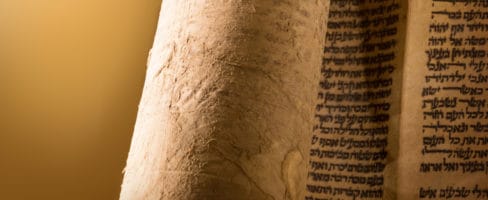Podcast: Play in new window | Download
Subscribe: RSS

The Jewishness of John’s Gospel
 There was a time in which Judaism & Christianity had many more beliefs in common. As it turns out, many ancient Jews before the time of Christ actually expected the coming of a divine messiah who would appear in bodily form in order to atone for sin and accomplish redemption. In fact, some Jews even spoke of this messiah as a kind of second divinity who was distinct from the Ancient of Days, and whose relationship to God was like that of a son to a father. Shane Rosenthal discusses these issues and more with Daniel Boyarin, author of The Jewish Gospels, and John Ronning, author of The Jewish Targums and John’s Logos Theology.
There was a time in which Judaism & Christianity had many more beliefs in common. As it turns out, many ancient Jews before the time of Christ actually expected the coming of a divine messiah who would appear in bodily form in order to atone for sin and accomplish redemption. In fact, some Jews even spoke of this messiah as a kind of second divinity who was distinct from the Ancient of Days, and whose relationship to God was like that of a son to a father. Shane Rosenthal discusses these issues and more with Daniel Boyarin, author of The Jewish Gospels, and John Ronning, author of The Jewish Targums and John’s Logos Theology.
Guest Quote:
The standard Aramaic translation of the Hebrew word for ‘word’ is actually a Persian lone word. That’s not the kind of word that we’re talking about. We’re talking about two other Aramaic words. The most common one was memra and the other is degora. These are not, generally, translating anything that’s in the Hebrew, but rather they’re part of a substitute for the name of God. So sometime, probably after the exile, the Jews stopped pronouncing the divine name. I think it says, somewhere, that it was only pronounced by the high priest on the Day of Atonement, and eventually, it was stopped being pronounced altogether. Kind of like in our English translations – when you have ‘LORD’ in capital letters in the Old Testament. You know that the capital letters indicate that that’s actually the name of God, Yahweh, which they no longer pronounce. But at some point, they also begin substituting not just ‘the LORD’ but ‘the Word of the LORD.” – John Ronning
Term to Learn:
These documents date from c. 250 B.C. – A.D. 70. They were found in Judean caves between 1947 and 1956. Thousands of fragments of biblical and early Jewish documents were discovered in eleven caves near the site of Khirbet Qumran on the shores of the Dead Sea. These important texts have revolutionized our understanding of the way the Bible was transmitted, and have illuminated the general cultural and religious background of ancient Palestine, out of which both Rabbinic Judaism and Christianity arose. A number of Old Testament texts were found in addition to the scrolls which defined the Qumran community. These series of documents include the oldest known surviving manuscripts of works later included in the Hebrew Bible, along with deuterocanonical and extra-biblical manuscripts which preserve evidence of the diversity of religious thought in late Second Temple Judaism at the time of Christ and the early church. (Adapted from the Westminster Dictionary of Theological Terms, s.v. “Dead Sea Scrolls”)
(This podcast is by White Horse Inn. Discovered by Christian Podcast Central and our community — copyright is owned by the publisher, not Christian Podcast Central, and audio is streamed directly from their servers.)